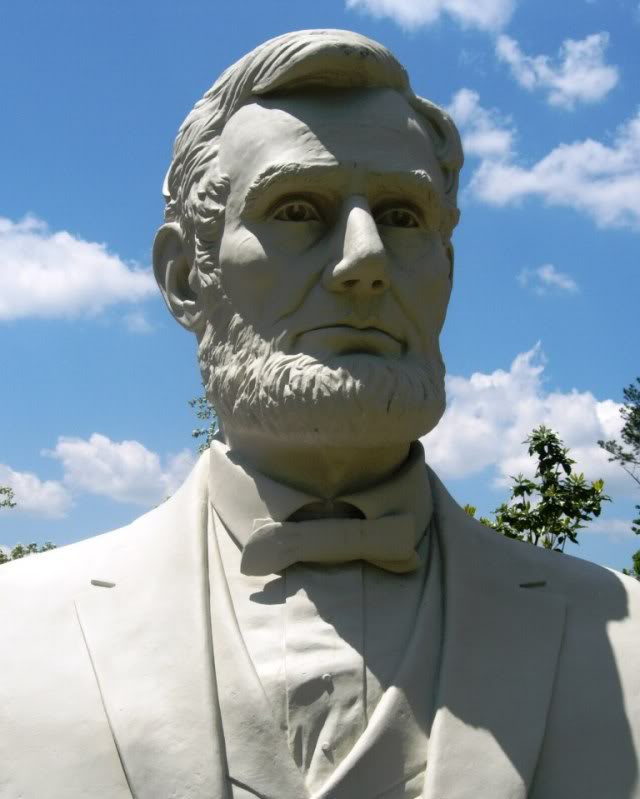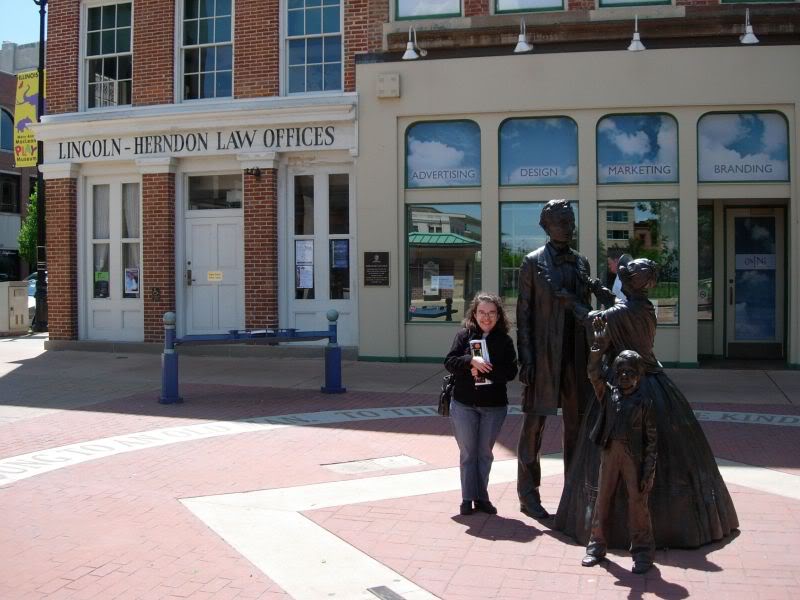
The book offers a lot of insights on how to lead in ways ideal for engaging – whether online or offline. There are key insights in what made Lincoln the kind of leader he became and what made the men in his cabinet, who began by thinking he was inept, come around and truly respect and adore him.
This first post is going to outline some of the things that Goodwin points out about Lincoln that I think could be valuable to you. I hope you find it to be so. With that, here are 20 leadership lessons you can learn from Abraham Lincoln.
1. From the very beginning of his political career, Lincoln’s first goal was to win the respect of the people he knew. When he ran for representative while he still lived in New Salem, Illinois, he took heart that almost everyone in New Salem had voted for him. This was enough to make his defeat seem slightly less bitter.
2. Lincoln never lost track of where he came from. He always kept it in his head that he had gotten less than a year of formal schooling. He knew that he had never had money. He knew that he was from the frontier while other people in his political circles had grown up in full fledged cities or otherwise established areas in the East. He knew these things, but he always fought to combat his disadvantages rather than let them beat him.
3. Lincoln fought melancholy (of which he had reason to experience a’plenty) with humor. When in company, he never let himself stay down for too long, and made his audience forget he had been down with his funny anecdotes and stories.
4. Wherever he went, Lincoln made friends. His heart and mind were always open to new people.
5. Lincoln is renowned in history as an amazing storyteller – he was able to draw people in with these stories without making them feel like they were being hit on top of the head with a hammer. They were fully engaged with him once his stories started.
6. One thing that people often miss about Lincoln is that he was a genius. One of the reasons it’s easy to miss this is because one of his great gifts was taking a complex concept and whittling it down so that anybody could understand it. For example, Goodwin notes that Lincoln used the following story to explain the state of slavery in the union in the 1850s:
He asked his audience to imagine that there is a bed where your children are sleeping, and you see snakes in there with the children. Now, you could try to kill the snakes, but you might hurt the children, or the snakes might bite the children. Imagine, then, if there was a whole other bed where you could put your children, and you wouldn’t have to deal with the snakes at all. Would you hesitate to make that decision? The open bed represented the free territories that did not yet have slaves in them.
7. Lincoln took advice, but in the end, he always trusted his own counsel most.
8. He could gracefully accept compliments and votes of confidence without getting an ego about him.
9. Lincoln gained a reputation for always thinking of the bigger picture first. Early in his political career, he had a chance at winning an election in Illinois. He had 47 votes, Lyman Trumbull had 5. However, those 5 votes were preventing Lincoln from getting the win, and he didn’t want a door to open for the Democrats to win, so he gave his 47 votes to Trumbull. Many people could not believe that Lincoln had let a man with 5 votes win, but he did it for the betterment of his party.

11. Lincoln did not let himself get weighed down by grudges. He befriended Trumbull rather shortly after that election debacle. When he first met Edward Stanton, Stanton looked at him in contempt and proceeded to ignore him. This did not prevent Lincoln from naming Stanton his Secretary of Defense. How important are grudges in the end?
12. Abraham Lincoln was a great student of people. He knew how to identify strengths in others, just as he knew his own strengths. He put his cabinet together, as improbable as it was, based on what each man could do.
13. Contrary to most politicians, Lincoln was no flip-flopper. In the 1840s, Lincoln decided his position on slavery was that it should remain untouched where it currently existed but that it should not be allowed to spread. He maintained this philosophy while shifting from the Whig party to the new Republican party, and he maintained it all the way until he issued the Emancipation Proclamation in 1862. Had the Civil War not been as disastrous as it was, he might never have changed his position in public.
14. Lincoln had endless patience which also coincided with an incredible sense of timing. He waited and waited for the right general, or for the wrong general to do the right thing. He waited until the right moment to announce he was running for the Presidency. He waited for the exact right moment to announce his Emancipation Proclamation to his cabinet and to the world.
15. Lincoln was endlessly compassionate. When a little girl wrote him that her father had been killed in the war, he took the time to write back to her and let her know he had also lost a parent when he was young, and how unfair it was that a child should have to go through that.
16. As a leader and as a person, Lincoln empathized with people easily. This allowed him to be compassionate, but it also allowed him to better understand people.
17. Although he stated he was a fatalist in philosophy, Lincoln worked as hard as he could at achieving the success he knew he wanted. When news reporters came to talk to him after he was nominated, he wowed them by reciting details about every state’s political situation. He worked to get nominated, he worked to get elected. He was always calculating. He just wasn’t a jerk about being calculating.
18. Ambition is different from being a braggart. Lincoln didn’t toot his own horn, but he knew that he wanted to be remembered as someone who had accomplished good things. This ambition drove him to excel from his childhood to the end of his life.
19. A pivotal point that doesn’t get discussed very often is that Lincoln was okay with shooting for second. His opinion was that if people already have a “first love,” you can’t necessarily talk them out of it. However, if they leave that first love, he would be able to swoop in and win their hearts. This is exactly what happened at the 1860 Republican Convention. Everyone thought William H. Seward would come away with the nomination, but as rivalries stirred trouble, Lincoln remained the only person that no one had a problem with, and that’s how he won.
20. Finally, Lincoln knew how to engage through leadership because he went out to meet his people. He was the only candidate in 1860 to leave his hometown and travel around the country, especially around New York and New England. During the Civil War, he went to military hospitals to visit the sick and wounded. Towards the end of the war, he went down to Richmond to see the people in the defeated capital. If you do not know your people, how can you engage with them, not to mention lead them?
Now here’s the real question for you. How can you apply these lessons to what you are doing right now? I’d love to hear your thoughts!
This is post #60 in The Engagement Series. If you want to make sure you don’t miss any posts, please feel free to hit the subscribe button!
Image Credit: http://www.sxc.hu/profile/bluepoetje